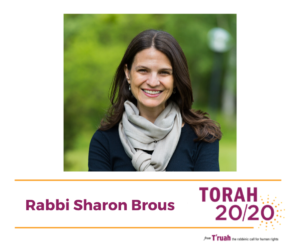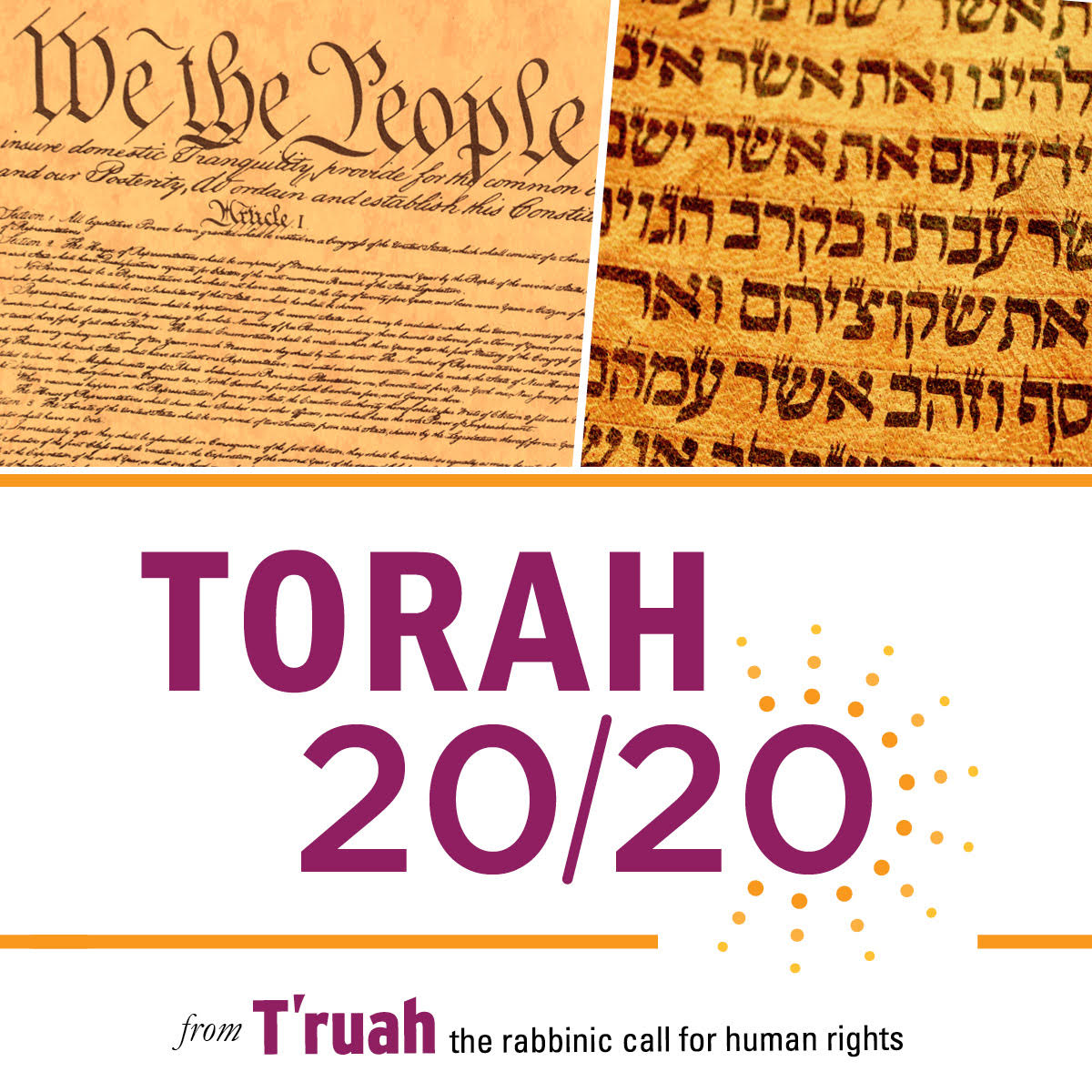The past couple of years have brought a colossal and long overdue cultural awakening around sexual harassment and assault. What wisdom does our Jewish tradition offer to help us hold pain and trauma, to honor the strength of truth-tellers, and to build healthy, new cultural norms?
Listen to the story of Dina, from the book of Genesis:
Dina is a strong girl, the only daughter among twelve sons. She’s living in a man’s world, which is probably why she ventures out one day to meet some of the girls in the neighborhood. Listen to what happens to her: Shekhem, the leader of the neighboring tribe, sees her. He takes her. He rapes her. He humiliates her (Genesis 34:2). And then, he thinks he falls in love with her. He decides he’d like to keep her.
When Jacob, Dina’s father, learns that his daughter has been abducted and assaulted, he — inexplicably — remains completely silent.
Jacob’s sons, Dina’s brothers, in contrast, are fueled by righteous anger over the indignity visited upon their family. Dina’s rape challenges the honor of their tribe. Two of the brothers, Shimon and Levi, take their swords and decimate Shekhem. They slaughter every man in the town, retrieve their sister, and bring her home. They also take all of Shekhem’s flocks, cattle, and wealth, in addition to the women and children, who become their captives. That’s some kind of justice.
It’s only then that Jacob finally finds his words. He is outraged, but not primarily by the rape. He’s alarmed by the precarious position that his sons’ revenge war on Shekhem has put him in. עֲכַרְתֶּ֣ם אֹתִי֒ — You have brought trouble on me, he says, or as the Artscroll translates: You have discomposed me. You have unsettled the political order for me! Now I will be hated among all the inhabitants of the land, who may band together to annihilate me (Gen 34:30).
The story ends with Shimon and Levi’s defensive response: Should we have let our sister be treated like a whore?
This is Dina’s story, but where is her voice?
Sign up to receive Torah 20/20 in your inbox each week.
Her father — the moral compass of the family, the model of spiritual mobility — fails to protect her, before, during, or after her assault. And her brothers, with their righteous fury, only wreak more trauma on more victims, including an entire population of women captives.
Silence and violence: twin responses to the most violent sexual assault in the Torah.
Sadly, Dina is denied agency not only by her attacker and by those entrusted to protect and support her, but also by our tradition, which fails altogether to record her voice or inquire about her experience. If only her story ended there, it would offer endless lessons on how not to respond to sexual violence.
But the cruelty to Dina persists for generations. Rashi points out that Dina is called, first and foremost, daughter of Leah rather than daughter of Jacob (Gen 34:1). Why? Because when Dina went out on the day of her assault, she was just like her mother, Leah, Rashi says, who went out years before hoping to have sex with Jacob (30:16). כְּאִמָּהּ כְּבִתָּהּ: like mother, like daughter. So we know exactly what Dina was looking for. Curiously, when the same verb is used to describe Jacob’s going out years before — וַיֵּצֵ֥א יַֽעֲקֹ֖ב מִבְּאֵ֣ר שָׁ֑בַע (Gen 28:10) — it’s read not as a sign of sexual assertiveness, but instead as an indicator of his righteousness.
And Rashi is not alone. The rabbis derive from Dina’s story that a man must “master his wife, that she go not out into the market place, for every woman who goes out into the market place will eventually come to grief” (Genesis Rabbah 8:12). They compare Dina to a pound of meat held in someone’s hand. Who can blame the bird that swoops down and snatches it away? (Genesis Rabbah 53:5)
The assumption of the bearers of our tradition, confronting the story of the abduction and rape of a daughter of Jacob, is that she asked for it. She is promiscuous. Immodest. Just like her mama. Even when the attacker is an enemy of Israel, our rabbis cannot comprehend a scenario in which the girl is not to blame.
How much has changed over the past two thousand years — and yet how much has stayed the same! As the last few years have made clear, sexual assault, abuse, and harassment transcend geography and generation. And we are long overdue for a reckoning.
It starts with Dina: reading her story between the lines of our text. Hearing her voice and seeing her humanity. Believing her.
But it doesn’t end there. Dina’s story reveals a society so rooted in patriarchal assumptions that not only assault and abuse, but also shaming, blaming and invisiblizing of girls and women, are more the norm than the exception. If only these norms were unique to the ancient world.
Dina’s rape points to the stubborn endurance of cultural systems that engender male power and female vulnerability, a dynamic that has not dimmed over millenia. Dealing with Shekhem means getting perpetrators out of positions of power and creating zero tolerance environments with real accountability.
Find more commentaries on Parshat Vayishlach
It also means recognizing that culpability doesn’t start and end with the offenders. The prevalence of sexual violence and misconduct today evidences a much larger circle of responsibility. Who is Jacob—the silent observer of harassment or misconduct, quietly praying for a short news cycle so we can get back to work, desperate to absolve himself of responsibility? How often do our boards and executive leaders ignore or dismiss allegations against donors, scholars, clergy, educators, in order to protect the reputation of the institution? And what about the rest of us — the fans who don’t want to hear about our players, or the musicians we love, or our beloved teachers with a shadow side?
We must acknowledge: sexual violence would never have become the multigenerational epidemic it is without ample layers of cowardice and complicity.
A poisonous culture has been perpetuated for generations with implicit and explicit support of our institutions and our leaders, and too often with our own quiet complicity. Today we, too — all of us — are responsible for building a culture of radical accountability, for establishing a new set of cultural norms that will allow us all to flourish.
עֲכַרְתֶּ֣ם אֹתִי֒ said Jacob to his sons, You have discomposed me. Upset the order for me. Shaken my foundation.
We need to discompose our culture of toxic masculinity. We need to unsettle the generations-old assumptions of sex and power that have created fertile ground for the indignities finally now being exposed in the light of day.
 This is how we become part of the tikkun, the course-correction, for Dina, and for so many others whose voices have never been heard. This is how the healing begins.
This is how we become part of the tikkun, the course-correction, for Dina, and for so many others whose voices have never been heard. This is how the healing begins.
Rabbi Sharon Brous is the senior and founding rabbi of IKAR, which launched in 2004 with the goal of reinvigorating Jewish tradition and practice and inspiring people of faith to reclaim a moral and prophetic voice. Brous’s TED talk, “Reclaiming Religion,” has been viewed by more than one million people and translated into 14 languages. In 2013, she blessed President Obama and Vice President Biden at the Inaugural National Prayer Service, and in 2017, she spoke at the Women’s March in Washington, DC.

